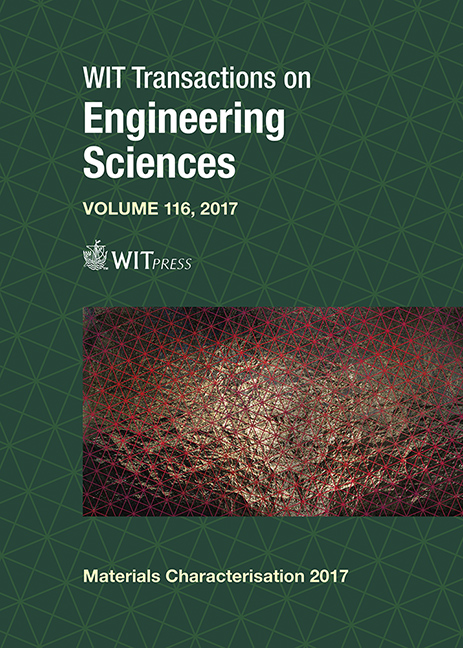EFFECT OF THE CNT GROWTH TEMPERATURE ON THE TENSILE STRENGTH OF CARBON FIBER
Price
Free (open access)
Transaction
Volume
116
Pages
7
Page Range
273 - 279
Published
2017
Size
364 kb
Paper DOI
10.2495/MC170281
Copyright
WIT Press
Author(s)
KAZUTO TANAKA, YOSHITAKA HINOUE, YUKI OKUMURA, TSUTAO KATAYAMA
Abstract
Carbon fiber reinforced plastics (CFRPs) are expected to be used for the structural parts of automobiles and aircrafts due to their mechanical properties, including high specific stiffness and high specific strength. It was reported that grafting of carbon nanotubes (CNTs) on the carbon fiber can improve the fiber matrix interfacial property, which plays an important role in the mechanical behavior of CFRP. On the other hand, grafting CNTs using the chemical vapor deposition (CVD) method sometimes weakens the tensile strengths of carbon fibers. In particular, when the growth temperature is relatively high, the fiber degradation is remarkable. In this study, CNTs were grafted on carbon fibers at growth temperatures from 550 to 700°C using Ni as the catalyst, and their tensile strengths were measured by single fiber tensile tests. The results indicated that the CVD processes, especially the higher temperature heat-treatment, accelerate the diffusion of catalysts into carbon fibers, and degrade the fiber strength. When the growth temperature was relatively low (550–600°C), there was no degradation of tensile strength for CNT grafted carbon fibers.
Keywords
CFRP, Carbon Nanotube (CNT), Chemical Vapor Deposition (CVD), CNT grafted carbon fiber, single fiber tensile test, tensile strength





